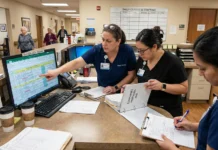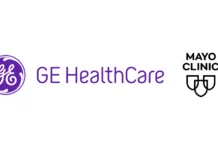Although working in a healthcare facility, healthcare workers are still susceptible to seasonal illnesses like influenza, cold, and cough. Most of these ailments are contagious, so every worker in your facility will start feeling sickly sooner or later. They may display symptoms such as diarrhea, vomiting, chills, body, mild cough, headaches, muscle pains, or sore throats.
Therefore, taking precautionary measures in your facility helps decrease the intensity of the spread, evade contraction altogether, and also avoid transmitting the illness to young children or persons with chronic conditions at home. With that in mind, below are eight ways to protect your healthcare workers from seasonal infections:
-
Encourage And Conduct Yearly Vaccination
Vaccinations are essential in healthcare facilities to help prevent seasonal illnesses. They help ensure your healthcare workers don’t get infected by patients they come into contact with. Thus, it is best to explain to your workers the importance of vaccinations so they can make informed decisions on how and when they should get vaccinations.
However, you wouldn’t want them to leave their jobs and queue for several hours to get their shots. An excellent option for a healthcare facility is onsite vaccination at the workplace, for which you can enlist the help of mobile health service providers like Onsite Health.
It significantly saves time and is convenient for most workers, as they won’t have to change their daily routine, which may result in numerous downtimes. Moreover, your staff will genuinely appreciate your kind gesture that shows you value their health. You can also give your healthcare workers incentives, like snacks and drinks, to encourage them to go for the shots. Since the vaccine’s potency decreases after some time, conduct annual on-site vaccinations to help strengthen their immunity.
-
Ask Unwell Workers To Stay At Home
If one of your healthcare workers isn’t feeling well and presents symptoms such as fever or chills, advise them to stay home and rest until they feel better. It’ll minimize disease transmission to other healthcare workers or patients in the hospital. Create a rule allowing your sick workers to stay home without penalizing them. Encourage them to file a sick leave whenever this happens, so the rest know why they can’t come to work. If they feel unwell after a flu vaccine shot, allow them to stay home.
-
Provide Workers With Personal Protective Equipment (PPE)
PPE kits can help protect your healthcare workers from illnesses and also help in minimizing the spread. Thus, give your workers protective gowns, gloves, respirators, and surgical masks to help them handle patients with colds, flu, or other contagious seasonal illnesses.
-
Encourage Proper Hygiene Practices
You must encourage your workers to reinforce proper hygiene habits to help prevent seasonal illnesses. For instance, you can tell your health workers to do the following:
- Clean their surroundings by regularly wiping off the surface and the floors
- Dispose of gloves and masks after use. For the coverall scrubs, it’s best to wash them thoroughly after a day’s work
- Maintain the cleanliness of kitchen appliances
- Wipe the doorknobs, telephones, and tables within the hospital facility
- Wash their hands regularly using soap and water or sanitizers
On top of this, provide workers with disposable towels to sanitize the surfaces they come into contact with within the hospital. Also, teach them to cover their mouth when coughing or sneezing. These little precautions go a long way to curbing the spread of diseases.

-
Be Cautious When Doing Aerosol-Generating Activities
Since seasonal illnesses are highly contagious, inform your healthcare workers to exercise precaution when conducting aerosol-generating procedures on patients, like respiratory tract suctioning, bronchoscopy, and dental and postmortem procedures. Your healthcare workers should use a respirator, gowns, and gloves when conducting these activities to limit the transfer of diseases to them. If possible, they can postpone the procedures if they’re not necessary during an outbreak.
-
Ensure The Facility Is Well Ventilated
Proper ventilation promotes the circulation of fresh air into the rooms, minimizing the chances of infection. That is why it’s imperative to keep the windows and doors open during the daytime for fresh air.
Also, regularly check on your Heating, Ventilation, and Air Conditioning (HVAC) systems to ensure they work efficiently. If there’s any damage to your system, have it repaired and inform the technicians to perform the necessary maintenance procedures.
-
Monitor Visitor Entry And Motion Within The Hospital
If there’s any outbreak of seasonal illness, put up barriers in the hospital so you can monitor movement within the healthcare facility. You can put screening centers where you check all the healthcare workers and patients coming into the facility. You’ll be able to spot those with seasonal illnesses and isolate them before they spread.
-
Train And Educate Workers On Precautions To Avoid Transmission
Various variants of seasonal illness erupt from time to time. For this reason, you must train and teach your healthcare workers to protect themselves from such ailments. You can teach them how to identify the symptoms of seasonal illnesses, how they’re transferred from one person to another, and how to minimize the exposure. You can also inform them about the essential PPE kits they must wear while in the hospital and how to dispose of them properly after use.
Conclusion
Protecting your healthcare workers from seasonal illnesses can help keep them healthy and productive because they won’t miss work. Therefore, conduct vaccination to prevent the diseases they may contract while interacting with patients and colleagues. An onsite vaccination would be appropriate because of its convenience and time-saving. Also, educate your healthcare workers on the precautions they should undertake to protect themselves. By following the valuable tips above, your healthcare facility can prevent downtime and operate successfully.


















